Ukraine crisis. The Reaction of Neighboring Countries
(no votes) |
(0 votes) |
The fast evolving crisis in Ukraine is causing concern to governments of neighbouring countries and post-Soviet states. We have asked RIAC experts specialising in the politics of the Baltics, the Balkans, the Trans-Caucasus and Central Asia to comment on the events in Ukraine and tell us about the positions taken by the countries they study.
The fast evolving crisis in Ukraine is causing concern to governments of neighbouring countries and post-Soviet states. We have asked RIAC experts specialising in the politics of the Baltics, the Balkans, the Trans-Caucasus and Central Asia to comment on the events in Ukraine and tell us about the positions taken by the countries they study.
The RIAC panel includes:
Lyubov Shishelina, Doctor of History, Head of East-European Studies Section at the RAS Institute of Europe: Countries of Visegrad group appeal to EU for a rapid Ukraine's European integration
Vadim Voinikov, Assistant Professor in the Department for International and European Law, Coordinator of the European Law Block of the EU Centre, Immanuel Kant Baltic Federal University: The Baltic states have traditionally been very vocal about Russia’s participation in the Ukrainian conflict
Vladislav Vorotnikov, Junior Researcher, MGIMO Centre for North European and Baltic Studies: The Baltic countries have recognised the forces that came to power in Kiev and adopted vigorously anti-Russian positions
Nana Gegelashvili, Director of the Center for Regional Research, Institute of USA and Canada of the Russian Academy of Sciences: The result of the “battle” for Ukraine will seal the choice of the Trans-Caucasian states in favour of a stronger foreign policy partner
Sergei Markedonov, Assistant Professor in the Department of Area Studies and Foreign Policy, Russian State University for the Humanities: The reaction by the countries of the Trans-Caucasus to the events in Ukraine has been very diverse
Artyom Dankov, Assistant Professor in the Faculty of World Politics, Tomsk State University: The leaders of the Central Asian states are concerned about the prospect of a further deterioration in the socio-economic and political situation in Ukraine
Pavel Kandel, Director of the Sector for Ethno-Political Conflicts, Institute of Europe of the Russian Academy of Sciences: The Balkan countries have no consolidated position on Ukraine
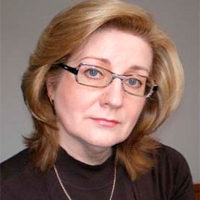
Lyubov Shishelina: Countries of Visegrad group appeal to EU for a rapid Ukraine's European integration
As the political crisis in Ukraine unfolds, the Visegrád Group countries have both demonstrated the region’s consolidated position, making a number of joint statements and sending their foreign ministers to Kiev and Donetsk at the end of February, and acted each on their own. Their joint statements have reflected the common EU and NATO point of view of the developments in Ukraine, complemented by involvement by the region’s countries in the EU’s Eastern Partnership programme. Remarkably, this point of view has evolved as tensions in Kiev and across the country have escalated. While, before the first victims fell on the Maidan, the idea was that intensified humanitarian cooperation would suffice, subsequent declarations have become increasingly harsh and have been supplemented with calls for immediate resumption of the Ukraine-EU association talks, introduction of visa-free travel for Ukrainians and urgent economic aid, i.e., anything that could help revert failure to sign the association agreement in November and turn the country towards European integration once and for all.
Although Hungary holds the current presidency of the Visegrád Group, it is Poland that has typically been busiest in relations with its neighbours to the east. For example, Foreign Minister Radosław Sikorski mediated the 21 February crisis settlement agreement among the parties, though this was never implemented. In line with the joint European position, the Visegrád Group responded quite harshly to the resolution by the upper chamber of Russia’s parliament giving the green light to use Russian armed forces on Ukraine’s territory. In their 4 March statement, the prime ministers of the Visegrád Group countries called for compliance with the 1994 Budapest Memorandum in order to avoid creating a “new reality” in Europe harking back to 1956, 1968 and 1981. In a joint letter addressed to Catherine Ashton and Štefan Füle, the EU’s Eastern Partnership envoy, they called on the EU to satisfy Ukraine’s aspirations to integrate into the EU as soon as possible.
Individually, there have been certain nuances in each of the countries’ positions.
Official Warsaw has actively supported the Maidan from day one and has since demonstrated the greatest activity concerning Ukraine’s affairs. After the 2 March decision by Russia’s Federation Council, Radosław Sikorski called the events in Crimea “a dangerous game capable of sparking regional conflicts”. On a visit to Turkey, Polish President Bronisław Komorowski called the referendum in Crimea scheduled for 16 March illegal.
Only the essentially marginal Samoobrona and the Obserwator Politiczny newspaper took a different position, supporting Russia’s concerns.
Official Prague was quick to react to the events in Ukraine. President Miloš Zeman said that, while he understood the concerns over the situation of Russian speakers in Crimea, the way they are being implemented reminded him of the 1968 military intervention. Yet he later tried to adjust his position, comparing the situation around Crimea with the events surrounding Kosovo. Prime Minister Bohuslav Sobotka called for maintaining Ukraine’s territorial integrity, stressing that political differences could not be resolved by violence. As for Czech Foreign Minister Lubomír Zaorálek, he reacted to the Federation Council’s decision by expressing concern about potential troop landings in various parts of Europe to occupy territories in order to protect their citizens’ rights.
According to an opinion poll conducted by Czech TV Channel 24, 66% of the respondents viewed Russia’s military presence in Crimea as an occupation, while 15% saw it as an appropriate reaction aimed at protecting the interests of the Russian-speaking population. The Crimea events were quick to bring back collective Czech memories of the Soviet intervention of 1968 (46%) or of Czechoslovakia’s occupation and annexation of the Sudetenland in 1938 (10%).
As the events around Crimea escalated, the club of Social Democratic MPs criticised what they considered to be the harsh attitude towards Russia by Foreign Minister Lubomír Zaorálek and Human Rights Minister Jiří Dienstbier. Former Czech President Václav Klaus supported Russia’s position more decisively, calling Ukraine an artificial entity and the West’s actions irresponsible. Czech Communists expressed a similar view.
Besides its EU and NATO membership, official Budapest’s position has been defined by at least three more important considerations: the 150,000-strong Hungarian minority in Transcarpathia, the start of an election campaign and a recent economic agreement with Russia that is rather lucrative for Hungary. That is why, in his comments on the situation in Ukraine, Hungarian Prime Minister Viktor Orbán first of all expressed concern about the situation of ethnic Hungarians in Western Ukraine, particularly in light of the new Ukrainian authorities’ repeal of the Language Law. At the same time, according to Viktor Orbán, the Hungarians cannot help but feel concerned about the picture of destruction in the neighbouring country and its descent into chaos and anarchy – not in the territorial sense, the Prime Minister was careful to stress, but in the sense of law and order.Nevertheless, ahead of his trip to Brussels on 4 March 2014, Viktor Orbán asked Hungarian politicians to refrain from rash statements that might jeopardise Hungary’s interests. In the same statement, Viktor Orbán supported the EU’s point of view to the extent of describing Russia’s actions aimed at what amounts to separation of Crimea from Ukraine as aggression requiring a response.
Hungarian Foreign Minister János Martonyi called for recognising the legitimacy of the new Kiev leadership and accelerating Ukraine’s European integration, stressing that Hungary fully shared the EU and NATO’s position. Parliamentary State Secretary of the Ministry of Foreign Affairs Zsolt Németh invited the Russian Ambassador to tell him that Russia’s current unlawful behaviour was reminding the Visegrád Group countries of the events of 1956, 1968 and 1981. Interestingly, this analogy is shared by Hungary’s ruling cabinet and social-liberal opposition, which has been holding anti-Russian rallies under the walls of the Russian embassy in Budapest.
The far-right Jobbik party differed from the Hungarian cabinet’s position and fully supported Russia’s actions to protect its compatriots in Crimea. The party branded the central authorities in Kiev illegitimate and called on the ruling party to defend Hungarian interests in Transcarpathia. In general, it saw the conflict as part of an intensifying standoff between Moscow and the Washington-Brussels axis.
Expert comments have ranged widely from accusing Russia of inherent aggressiveness to understanding its concerns over the geopolitical losses dating back to 1991. Most experts see no difference between the oligarchic system of the old power and the new emerging power in Ukraine.
As far as Slovakia’s position is concerned, the country has not made any extraordinary statements on the events in Ukraine. President Ivan Gašparovič has confined himself to remarking that his country could not afford to play solo in such situations, while Prime Minister Robert Fico said it was not worth making gestures just for the sake of it. After the 4 March Brussels summit, Slovakia’s Foreign Ministry issued a statement almost identical to that of the Hungarian Foreign Ministry, supporting Ukraine’s territorial integrity and demanding that all armed personnel return to the barracks.
Russia has not been listened to since 1991; cornered, it is acting in order finally to be heard. Europe is not accustomed to this, perhaps because of a lack of information support and more than two decades of inattention to building relations with Eastern and Central Europe.
The number of potential scenarios for further developments in Ukraine is decreasing over time. Ukraine’s federalisation in one form or another, up to separation of territories from it, is perhaps becoming inevitable. The question is how to minimise the human cost and avoid a military escalation.
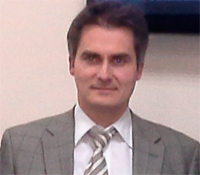
Vadim Voinikov: The Baltic states have traditionally been very vocal about Russia’s participation in the Ukrainian conflict
As members of both NATO and the EU, the Baltic states have traditionally been very vocal about Russia’s participation in the Ukrainian conflict. They view the Russian military presence in Crimea as an act of aggression infringing on Ukraine’s sovereignty and also creating a threat to European security as a whole.Consequently, there have been calls for strengthening NATO’s military presence on its eastern borders and for ensuring international isolation of Russia.
As for Ukraine’s future, I believe two scenarios are probable.
Scenario one. If Ukraine manages to consolidate its society and if a political force capable of achieving that appears on the scene, Ukraine would be able to maintain its territorial integrity and emerge from the crisis. In this case, Crimea would get wider autonomy, de facto tantamount to statehood, while legally remaining part of Ukraine. Under such circumstances, Russia would retain its military presence in Crimea in accordance with the existing agreements with Ukraine, supplemented by new agreements signed by the new Crimean government. The Ukrainian government is unlikely to recognise this kind of autonomy but they might have to live with it. Most Crimeans would likely hold dual Ukrainian-Russian citizenship.
The second potential scenario involves increasing polarisation of society, with a resulting break-up of Ukraine into several independent states, each pursuing its own policy.
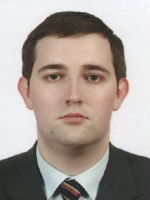
Vladislav Vorotnikov: The Baltic countries have recognised the forces that came to power in Kiev and adopted vigorously anti-Russian positions
Vladislav Vorotnikov, Junior Researcher, MGIMO Centre for North European and Baltic Studies
Quite predictably, the Baltic countries have recognised the forces that came to power in Kiev and adopted vigorously anti-Russian positions. Lithuania has recalled its ambassador from Moscow and reminded Ukraine of its immediate readiness to sign an Association Agreement with it. The Foreign Ministries, parliaments and heads of state have made harsh declarations about the growing threat coming from Russia, “occupation of Ukraine” and the need to strengthen military cooperation among the Baltic countries, expand NATO’s military presence on their territories and impose sanctions on Russia. Yet, almost from the beginning, statements by politicians, including those in government, and media publications revealed a lack of total socio-political unanimity on those issues.
For instance, Lithuania’s Prime Minister Algirdas Butkevičius has said that the search for solutions in this situation should be through dialogue, while sanctions against Russia “could hurt Lithuanian businesspeople”. According to Latvia’s President Andris Bērziņš, “sanctions against Russia could backfire”. In Estonia, the questions of Ukraine and related Western sanctions might well take a back seat to the resignation of Prime Minister Andrus Ansip and his government, while keeping their regular place in foreign policy rhetoric and party politics. At the same time, a statement by Tallinn Mayor and the leader of the Estonian Centre Party Edgar Savisaar that aid should be provided to Ukraine “only once basic public order has been restored in both Kiev and Western Ukraine” and that “the current government set up under pressure from radicals lacks a mandate and the ability even to hold a free election” stirred up a lot of public emotions (Estonia’s Minister of Defence has even accused him of being “a Russian agent of influence” and representatives of the ruling Reform Party called the Centrists “a threat to the European Union”).
It is hard to say what shape this emerging trend might take in the future: much will depend on in the direction taken by the Ukrainian crisis going forward. Even so, the attempts to assess the events and the Russia–West relations rationally demonstrate that the common sense of the “homo economicus” is capable of outweighing the commitment to the ideological sound bites in whose veracity not all Baltic leaders seem to believe.
Without a doubt, Ukraine is not a key trade partner for the Baltics but it has steadily been in the top ten. That is why the Baltic states, like other East European countries, have already started experiencing the consequences of the Ukrainian crisis. According to Lithuanian economists, it could shave a few tenths of a per cent off Lithuania’s economic growth. Their counterparts in Latvia and Estonia share this opinion. Undoubtedly, the Baltic countries’ economies would suffer a lot should the EU impose economic sanctions on Russia, yet it is only radicals that publicly speak of the reality of such measures in the Baltics.
The Ukraine situation largely remains in the realm of “supposedly” and “not officially confirmed”, which makes almost any discussion look like water cooler talk. Perhaps the only certain thing is that the situation cannot be reversed at the speed with which the country spiraled into this seriously grave political crisis.
It is also clear that the search for accord among Ukraine’s various parts and regions will require lengthy negotiations, in which only common sense, goodwill and attention to the interests of all direct conflict participants and stakeholders – both domestic and external – will help find a mutually acceptable solution. Ukraine’s population, which is rightfully demanding socio-political change, remains hostage. As we know, not even a national unity government has been able to be formed yet; essentially, there is no consolidated position of the south-eastern regions on the country’s future. That is why, as long as ideologically motivated, poorly though-out statements and actions by the leaders in Kiev, not recognised by a substantial portion of Ukraine’s population, continue to define the current processes when, according to the US Secretary of State John Kerry, all is crystal clear to everybody, it will be extremely difficult, if not impossible, to avoid escalation of the conflict.

Nana Gegelashvili: The result of the “battle” for Ukraine will seal the choice of the Trans-Caucasian states in favour of a stronger foreign policy partner
Nana Gegelashvili, Director of the Center for Regional Research, Institute of USA and Canada of the Russian Academy of Sciences
I think the Trans-Caucasian states’ attitudes towards the events in Ukraine are as mixed as elsewhere in the world. Yet the result of the “battle” for Ukraine between Russia, on the one side, and the US and the EU, on the other, will not only determine the balance of power among those key players internationally, at least in the medium term, but will also seal the choice of the Trans-Caucasian states in favour of a stronger foreign policy partner. In this respect, I would like to note the emerging process of a quite close and coordinated partnership between the US and the EU. This is evidence that today’s overreach by the United States is creating a situation in which Washington has to delegate many tasks to the EU, in close correlation with the context of the Trans-Atlantic Partnership promoted by Barack Obama.
Designing scenarios is a thankless job. The most sophisticated scenario might be of zero interest to political strategists, so the simpler the scenario, the more likely it will play out. I believe everything will return to normal: the situation in Ukraine will come under control, thus becoming secure. At least such a picture will be understood by all, in the West and in the East. That is why there will be no radical changes involving Ukraine: no one is prepared for them just yet, after all.
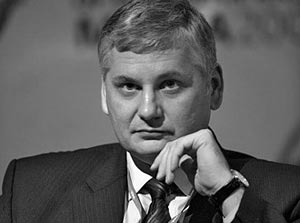
Sergei Markedonov: The reaction by the countries of the Trans-Caucasus to the events in Ukraine has been very diverse
Sergei Markedonov, Assistant Professor in the Department of Area Studies and Foreign Policy, Russian State University for the Humanities
The reaction by the countries of the Trans-Caucasus to the events in Ukraine has been very diverse.
Georgia, for one, has for many years considered Ukraine as a sort of senior partner in the post-Soviet space, together with which it is easier to stand up to Moscow’s “hegemony”.
This began long before Viktor Yushchenko became President. Suffice it to say that Ukraine and Georgia signed a bilateral agreement on friendship, cooperation, and partnership back in April 1993, the first such agreement to be signed in the post-Soviet space between former Soviet republics rather than between Russia and those countries. Afterwards, under Leonid Kuchma, the idea of potential engagement by Ukrainian peacekeepers in the operation in Abkhazia was contemplated and, under Viktor Yushchenko, both countries intensified cooperation to the maximum. By the way, Viktor Yanukovych has continued that line by refusing to recognise Abkhazia and South Ossetia.
Yet now the Georgian leaders, the President and the Prime Minister, are not charging ahead as Mikheil Saakashvili would have done, had he still been in power. By the way, Georgian government representatives have given a skeptical assessment of the former President’s presence in revolutionary Kiev. Irakli Garibashvili and Giorgi Margvelashvili are treading more carefully. They sympathise with the Ukrainian people and say that violence must be avoided, for which, by the way, they are coming in for a lot of flak from their opponents. After Irakli Garibashvili’s speech in Munich, he was rather sharply criticised by Giorgi Bokeria, one of the leaders of the United National Movement, who said that Irakli Garibashvili was behaving in an almost treacherous manner towards Ukraine. Of course, the official powers are on Ukraine’s side on the whole, as they are concerned that this situation might reflect upon Georgia in some way, but they are proceeding less clumsily than Mikheil Saakashvili would have done.
Yet, in the media and expert circles, the argument about “the year 2008 replaying in Ukraine” probably dominates. Everybody is comparing Crimea to South Ossetia, while, in my opinion, there are glaring differences between those two situations.
Azerbaijan’s position is very difficult, because, on the one hand, Ukraine is an important energy partner. Whereas Georgia and Ukraine have fashioned themselves as a political alternative, Ukraine and Azerbaijan have considered themselves as an energy alternative to Russian domination. In this regard, chaos in Ukraine and Ukraine’s fragmentation are a wake up call for Azerbaijan. Add to this the question of territorial integrity, to which Azerbaijan reacts even more harshly than Georgia.
At the same time, Azerbaijan is extremely scared of street revolutions and Maidans. What is more, there have been Maidans and attempts at “Orange Revolutions” in Azerbaijan’s past, too. In 2005, at the time of parliamentary elections in Azerbaijan, the opposition was even wearing orange T-shirts and hanging out orange flags. So Baku would not want something like that to happen in Azerbaijan. Yet Azerbaijani youth, especially those who study in Turkey, are very active sympathisers with the Maidan. Not so much with specific geographic or economic stories, as with the idea of revolution as such.
In Armenia, the forces that sympathise with the Maidan are relatively small. If unrest is possible there, it will come about for other reasons altogether: there is significant discontent with the government. In terms of geopolitics, the forces that criticise Russia and the Customs Union are still quite small. Very many experts in Armenia believe that the invitation to join the Customs Union and pushing through of Armenia’s membership result from Ukraine–Russia relations. Politicians keep mum, but Armenia’s experts write about this. They say that Armenia should perhaps negotiate special terms for Eurasian integration and obtain some kind of preferential treatment from Russia, that bargaining with Moscow is possible right now.
Armenia is also anxious that, if Russian-Ukrainian relations spin out of control, Azerbaijan might try to upset the status quo in Nagorny Karabakh.
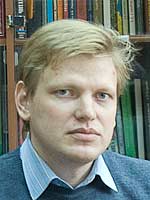
Artyom Dankov: The leaders of the Central Asian states are concerned about the prospect of a further deterioration in the socio-economic and political situation in Ukraine
Artyom Dankov, PhD in History, Assistant Professor in the Faculty of World Politics, Tomsk State University, Director of the Centre for Post-Soviet Studies
It is worth noting that the reaction by the leaders of the Central Asian countries to the Ukrainian events has been very restrained. The Foreign Ministries of Kazakhstan and Uzbekistan have released official statements on the situation in Ukraine, calling for any options of settling the situation by force to be abandoned and for restraint to be shown. The Foreign Ministries of other countries of the region have not yet reacted to the events.
Among the Central Asian leaders, it was Kazakhstan’s President Nursultan Nazarbayev who has expressed the greatest concern over the situation in Ukraine. He initiated a meeting of the three leaders of the Customs Union, where the parties discussed the Ukrainian problem, among other things, behind closed doors.
Why such a reserved reaction to the “Ukrainian crisis” from the Central Asian states? First of all, the developments in Kiev took even the leaders of the world’s major countries by surprise, and even more so the leaders of Central Asia. Second, their “silence” betrays a desire not to give opposition forces additional reasons for criticising the powers that be.
It is, of course, impossible to draw direct parallels between Ukraine and Central Asia. Admittedly, on the one hand, the Central Asian countries are facing more or less the same set of problems as most other post-Soviet states, including Ukraine. The most threatening of these are language and ethnic relations, building the “centre–regions” system of ties, and social and economic inequality.
Yet it does not make sense to talk about the possibility of a “Ukrainian scenario” playing out in the key Central Asian states of Kazakhstan and Uzbekistan. The Ukrainian crisis is rooted primarily in the incapacity and ineffectiveness of the Ukrainian authorities. That is what has seriously exacerbated many conflicts that previously lay latent. The leaders of the Central Asian states, first of all Kazakhstan, are concerned about the prospect of a further deterioration in the socio-economic and political situation in Ukraine, which will have a negative impact on the entire post-Soviet space.
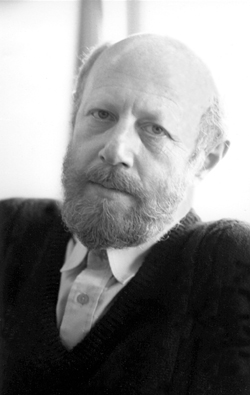
Pavel Kandel: The Balkan countries have no consolidated position on Ukraine
Pavel Kandel, Director of the Sector for Ethno-Political Conflicts, Institute of Europe of the Russian Academy of Sciences
The Balkan countries have no consolidated position on Ukraine. Individually, EU members Bulgaria, Romania, Slovenia and Croatia generally share the common European position. They make no sharp statements because they are in an extremely unfavourable economic situation and need EU assistance, which is why they could not act more independently, even if they wanted to.
The only thing worth noting is that, surprisingly, Romania met the news rather calmly. President Traian Băsescu has even said that Romania is not under any threat. Bulgaria has viewed the situation in Ukraine with a lot of concern but the concern is specific and related to Bulgaria proper. The National Security Council attached to the President of Bulgaria is scheduled to meet to discuss concrete measures stemming from the situation in Ukraine: what needs to be done if the gas pipeline is shut down, if refugees start arriving, etc. That is their reaction – a quite anxious one at present. There have been almost no specific reactions from other Balkan countries.
Naturally, the situation in Ukraine will affect Transdnistria very directly: depending on what happens in Crimea and what the new Ukrainian government does, what their position on Transdnistria will be, and it is clearly bound to be anti-Russian. Of course, this will have an effect on the situation in Transdnistria, but the main question today is what is going to happen in Ukraine. Nobody can answer that because several scenarios are playing out. The Western side has its own scenario and Russia has one, too, and apparently more than one.
The new Ukrainian government is in the worst position of all: they have a lot of emotions but are unable actually to do anything because that government is not in charge of the country. As to when they might regain control of the country remains to be seen and there is no answer to that yet. Accordingly, events will develop depending on a lot of factors, including totally random ones (there are always revolutionary situations) and they could upset every scenario by all parties.
(no votes) |
(0 votes) |



